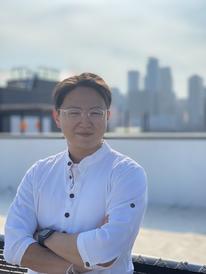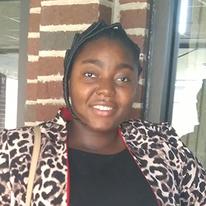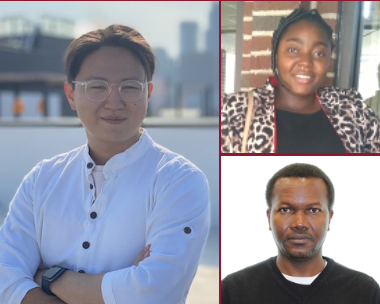"What are you doing after graduation?" is a question often asked of students in their final year. Three international graduate students shared their plans to make a difference in their home countries by helping eliminate mother-to-child transmission of HIV, advancing community-based approaches to policy development, and implementing renewable energy to improve quality of life.
A Public Health Leader
Adetunji Bakare wants to be a public health leader in Nigeria to make the country a safer place for all.
Bakare is graduating with his master’s in public health this spring. Before coming to the University of Minnesota, Bakare spent 14 years working in public health and clinic practice. Eight of those years were with Nigeria’s national HIV program, supporting monitoring and evaluation initiatives.
“In public health we actually deal with the health of the population as compared to the clinical practice where we only deal with the health of the individuals and treat patients one case at a time,” Bakare said. “The current pandemic actually reiterates the importance of public health. Clinical care alone would not have been able to have the impact that public health interventions have.”
After graduation, Bakare will be joining a non-profit organization in Nigeria. He will be working to improve the organization’s use of data in the Prevention of Mother to Child Transmission of HIV/AIDS (PMTCT) program, which he says will help Nigeria meet the World Health Organization target of eliminating mother-to-child transmission of HIV/AIDS.
Bakare says his time at the School of Public Health has prepared him well.
“I’ve learned statistical and epidemiological skills that I’ll be able to apply to my future roles,” Bakare said. “My capacity has been built beyond imagination.”
Returning Home After Eight Years in Minnesota

Tsogtbilguundari “Bill” Khishigbat will be returning home to Mongolia after eight years studying and working in the U.S.
Khishigbat came to Minnesota in 2013 to attend St. Cloud State University, but decided to transfer to the University of Minnesota after seeing the Twin Cities campus for the first time.
“I was so fascinated by the massive and beautiful campus,” Khishigbat said.
The government of Mongolia was also offering financial aid to students accepted to one of the top 100 universities in the world, making his decision to attend UMN even easier.
After completing his undergraduate degree, Khishigbat spent a year working and gaining practical experience before returning to UMN for his master’s in sustainable development.
“By the time I finish school, I will be both equipped with theoretical knowledge and practical experiences,” Khishigbat said.
In his spare time, Khishigbat produces Seheeten Podcast, discussing topics from equal education to political transformation in Mongolia. The episodes have over 3 million downloads.
“I want to continue producing impactful content that disseminates knowledge and elevates the voices of activists,” he said.
Khishigbat also hopes to get involved in Mongolia’s policy development sector and advance community-based approaches at the decision-making level.
Researching Renewable Energy to Improve Quality of Life

Aduramo Lasode came to the United States for her undergraduate degree in mechanical engineering. Now she is completing her PhD and preparing to help her home country meet its renewable energy goals.
Growing up in Nigeria, Lasode observed how having electricity enabled people to be more productive and innovative. But she also saw how pollution contributed to a variety of health problems.
“That got me very interested in how to help make sure that societies and communities in need have access to energy in a way that helps to improve quality of life,” Lasode said.
Lasode’s research looks at ways to have renewable energy technology be affordable and scalable, focusing on how waste can be used to create clean energy.
“I believe that Nigeria has a great potential when it comes to energy sources,” Lasode said. “There are opportunities to set up systems that could help address multiple issues of quality of life, pollution, and health. I look forward to being able to contribute significantly to our renewable energy efforts.”
These students received the Colonial Dames of America scholarship.
